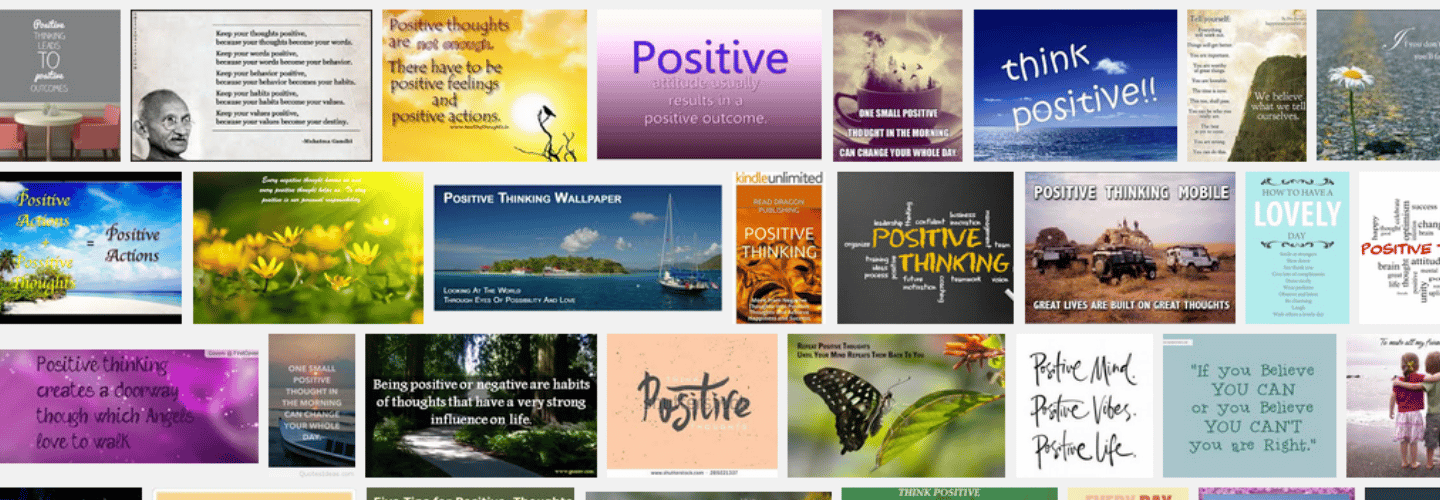
To foster positive thinking in your daily life, start by practicing gratitude each morning and again before bed, acknowledging the good surrounding you. Identify and lean into your strengths, remembering past successes to build confidence. Choose role models who embody positivity and resilience, reflecting on how they handle challenges. Manage negative thoughts by recognizing and reframing them, viewing obstacles as opportunities for growth. Embrace whatever weather comes your way, finding beauty and lessons in each variation. Commit to proactive kindness, engaging in small acts that boost both your mood and that of others. This approach sets a foundation for a more positive outlook, and as you integrate these habits, you'll notice profound shifts in your perspective and interactions.
Key Takeaways
- Practice gratitude daily to shift focus to abundance and cultivate a persistent sense of thankfulness.
- Identify and embrace personal strengths, using them to fuel positive self-talk and growth.
- Choose role models who exhibit optimism and dedication, and emulate their positive traits.
- Manage and reframe negative thoughts to focus more on positivity and less on unhelpful patterns.
- Engage in proactive kindness, uplifting your mood and fostering positive relationships through small, thoughtful acts.
Practice Daily Gratitude
Why not start each day with a moment of gratitude? This simple practice can set the tone for a more positive outlook. By expressing gratitude three times a day, you're not just ticking a box; you're paving the way for heightened positivity and overall happiness.
It's about shifting your focus from what's lacking to appreciating what's abundant. This shift is pivotal in fostering a mindset that not only sees the glass as half full but also appreciates the water it holds.
Moreover, wrapping up your day by listing three things you're thankful for isn't just a bedtime routine; it's a powerful tool that enhances your mental health and improves your sleep patterns. Think about it—by acknowledging the good, you're effectively reducing stress and setting the stage for better sleep quality.
It's not merely about ending the day on a high note, but about reinforcing a cycle of positive thinking.
Cultivating a habit of gratitude helps you concentrate on the positive aspects of your life, promoting your emotional well-being. It's a transformative practice that turns everyday moments into opportunities for appreciation and growth. Embrace this habit, and watch as it profoundly shapes your perspective and life.
Define Your Strengths

Building on the foundation of gratitude, defining your strengths offers another layer to your daily practice of positive thinking. When you identify what makes you great, you're not just boosting your self-esteem; you're setting the stage for a positive mindset that permeates every aspect of your life. It's about recognizing your capabilities and celebrating them, which in turn fuels a cycle of positive self-talk and increased self-confidence.
Acknowledging your weaknesses is part of the journey, but the key lies in not dwelling on them. Instead, focus on your past successes and how they exemplify your strengths.
This isn't just about feeling good in the moment; it's about building a reservoir of motivational memories that remind you of your potential for growth and improvement. Each success story is a stepping stone to a brighter, more confident you.
Choose Positive Role Models

As you continue your journey in positive thinking, pinpoint figures who inspire you. By observing and emulating the admirable traits of these role models, you'll find practical ways to enhance your own life and mindset.
Focus on the qualities that resonate with your personal goals and let these role models steer your path to self-improvement.
Identify Inspiring Figures
Look up to those who inspire you; choosing positive role models can greatly enhance your motivation and guide your personal journey toward growth. When you pinpoint individuals whose qualities resonate with your aspirations, you're setting a foundation for cultivating positive thoughts and behaviors. It's about seeing someone's path and feeling a spark that lights your own way.
Selecting these figures isn't just about admiration; it's a proactive choice to align yourself with the kind of success and fulfillment you envision for yourself. These role models should embody the traits that you value most and demonstrate how these can be translated into actions.
It's not about envying their achievements but rather seeing them as signposts on the map of your own potential.
Emulate Admirable Traits
Having identified inspiring figures who catalyze your motivation, it's equally significant to actively embody the traits that make these individuals your role models. As you navigate your journey towards positive thinking, using role models isn't just about admiration—it's about transformation. These chosen figures represent not just success but the resilient, ethical, and compassionate behaviors you wish to instill in yourself.
Role models serve as mirrors reflecting the qualities you aspire to develop. By zeroing in on what exactly you admire in them—perhaps their unwavering optimism, dedication, or ability to overcome adversity—you set a tangible benchmark for your own growth. It's vital, however, to select these role models based on genuine admiration rather than envy. This guarantees that your motivation remains healthy and constructive, pushing you towards self-improvement rather than self-critique.
Emulating admirable traits involves more than just wishful thinking; it requires action. Break down these traits into actionable steps. If positivity is what you seek, consider how your role model handles setbacks. What can you learn from their resilience? Integrating these observations into your daily habits gradually transforms your mindset, inching you closer to becoming the best version of yourself, brimming with positivity.
Manage Negative Thoughts

As you navigate your thoughts, it's essential to identify patterns that may be fostering negativity. By reframing how you process these thoughts, you can transform them into constructive challenges rather than obstacles. This shift enables you to release unhelpful thoughts, paving the way for a more positive daily experience.
Identify Negative Patterns
You can start to identify negative thinking patterns by closely monitoring your self-talk and emotional responses. When you catch yourself spiraling into negative thoughts, pause and label them. This isn't just about recognizing that you're having a negative thought; it's about understanding these thoughts aren't your reality. They don't define you or your capabilities.
As you become more attuned to your internal dialogue, you'll begin to notice specific triggers that set off these patterns. Maybe it's a specific time of day, a particular interaction, or even a distinct location. Pinpointing these triggers is pivotal because once you're aware of them, you can start to develop strategies to counteract them before they lead to a cascade of negativity.
It's also crucial to cultivate a practice of self-awareness. This means not only identifying and labeling your negative thoughts but also intentionally replacing them with positive affirmations. This practice doesn't just shift your mindset momentarily; it gradually transforms your overall outlook to be more positive. Remember, fostering a positive outlook is a skill that you can develop with persistence and patience, and it starts with managing the negative thoughts that cloud your perspective.
Reframe Thought Processes
Managing your negative thoughts is essential for fostering a healthier mindset. It's normal to experience negative thoughts; however, recognizing them as separate from reality can notably enhance your mental health. By labeling these intrusive thoughts and seeing them as external to your true self, you create a psychological distance that aids in lessening their impact.
You might find it helpful to reframe your thought processes by externalizing negative thoughts. Try singing them out or speaking them as if they belong to someone else. This technique not only reduces their seriousness but also allows you to view them with a lighter heart, reinforcing positive emotions. Remember, positive individuals don't let these thoughts linger. Instead, they shift their focus towards more productive and positive thinking patterns.
Reframing isn't about denying your feelings but rather changing your response to them. It's about not letting negative thoughts dictate your reality. This shift is a key habit practiced by those who maintain a positive outlook.
As you work on these techniques, you'll notice a gradual shift towards more positive engagements and a healthier mental state, focusing on what truly enriches your life.
Release Unhelpful Thoughts
Reframing your thought processes sets the stage for the next vital step: releasing unhelpful thoughts. Once you've identified these negative patterns, it's pivotal to consciously detach from them to maintain a positive mindset. Recognizing that these thoughts aren't an absolute reality helps you prevent them from overwhelming your emotional life.
Consider techniques like vocalizing these negative thoughts—sing them out loud or state them dramatically. This externalization can make it clear how unproductive and detached from reality these thoughts often are, easing their release. It might feel unusual at first, but it's a powerful tool to disempower the negativity.
Remember, positive individuals don't let these thoughts linger. Instead, they focus on letting them go. This practice isn't about suppression but about acknowledgment and release. It's okay to have negative thoughts; everyone does. The key isn't to let them settle and take root.
By learning to let them flow through and away from you, you reinforce your ability to cultivate a positive mindset.
This active release of unhelpful thoughts is essential for your mental well-being. It's about making space for positive experiences and emotions that support and enrich your life.
Adapt to Weather Changes

While adapting to different weather conditions, it's important to embrace them with a positive mindset, as this approach can greatly enhance your mood and perspective. Whether it's the soothing rain or the invigorating sunshine, every type of weather offers a unique opportunity to enrich your mental and physical health.
Seeing the positive side of sudden showers might lead you to appreciate the calmness it brings or the way it refreshes the earth.
Similarly, a sunny day isn't just good for your vitamin D levels but also boosts your serotonin, uplifting your spirits remarkably. Positive thinkers often use these variations to reinforce their adaptability and resilience, turning potential complaints into moments of gratitude.
Focus on Solutions

When you center your attention on solutions, you're not just avoiding unnecessary stress; you're also prioritizing the most effective ways to navigate challenges.
By embracing constructive problem-solving, you channel your energy into actions that aren't only proactive but also deeply fulfilling.
This approach enables you to develop resilience, making you better equipped to handle various situations with a positive outlook.
Embrace Constructive Problem-Solving
Many people find that focusing on solutions rather than dwelling on problems not only conserves energy but also enhances effectiveness. When you shift your mindset to emphasize constructive problem-solving, you tap into a reservoir of positivity and potential. It's about channeling your mental resources toward what can be done rather than what went wrong.
Consider this: each time you encounter a setback, you're presented with a choice. You can either linger on the negative aspects, which saps your energy, or you can pivot towards finding a solution, which inherently focuses on positive outcomes. This proactive approach not only preserves your energy but also builds resilience.
By consistently choosing to focus on solutions, you train your mind to think constructively, turning potential stressors into opportunities for growth.
Moreover, avoiding the procrastination of negative emotions by actively seeking solutions helps you maintain momentum. It's essential to recognize that while problems are inevitable, the way you respond to them defines your journey and impacts your overall well-being.
Always steer your thoughts towards positive things and constructive problem-solving; it's a transformative habit that nurtures a robust, solution-oriented mindset in the face of challenges.
Prioritize Effective Strategies
Prioritizing effective strategies enables you to tackle life's hurdles with agility and insight. When you focus on solutions rather than dwelling on problems, you're not just conserving energy; you're also boosting your effectiveness. It's about shifting your perspective—seeing challenges as opportunities to grow and evolve.
You know that ruminating on what's wrong only deepens the groove of negativity. Instead, by maintaining a solution-oriented mindset, you're poised to overcome obstacles more efficiently. Think about it: each time you're faced with a tough scenario, instead of getting bogged down by frustration or fear, you zero in on actionable solutions.
This approach doesn't just clear the path; it paves a new one towards a brighter, more optimistic future.
Embracing this proactive stance, you let go of counterproductive thoughts and open up to positive thinking. Remember, it's not about ignoring the complexities of life. Rather, it's about choosing to focus your energy where it will yield the most benefit—on solutions that move you forward.
This shift in focus is transformative, equipping you with the tools to navigate life's ups and downs with a hopeful, determined spirit. Keep this strategy at the forefront, and watch how your daily experiences change.
Channel Energy Constructively
Harnessing your energy constructively pivots significantly on focusing on solutions rather than being ensnared by problems. When you prioritize finding solutions, you're not just avoiding the trap of negative thinking; you're actively directing your mental resources toward positive outcomes. This strategic focus is crucial because it conserves your energy and increases your effectiveness, allowing you to overcome obstacles with remarkable resilience.
Consider that dwelling on problems often leads to a drain on your mental energy. Instead, by maintaining a solution-oriented mindset, you effectively sidestep the quagmire of procrastination fueled by negative emotions. It's about channeling your energy towards constructive problem-solving, which in turn fosters a more positive outlook on life.
Understanding that negative thoughts are a normal part of the human experience is key. However, positive individuals distinguish these thoughts as separate from reality. They let them go swiftly and refocus on proactive solutions. This habit is vital; it's not just about being optimistic but being pragmatically positive—actively seeking ways to improve your situation reinforces a positive mindset and enhances your overall mental well-being.
Explore Alternative Outcomes

In the landscape of decision-making, recognizing that alternative outcomes aren't just possibilities but pivotal paths to resilience and adaptability. As you navigate life's uncertainties, exploring various paths is fundamental. This habit isn't solely about avoiding disappointment; it's about preparing yourself for different realities and maximizing your growth potential.
When you view options B and C as equally valid as option A, you're not just making a choice; you're expanding your horizon. This approach fosters flexibility and open-mindedness, necessary qualities in a world where change is the only constant. By embracing alternative outcomes, you cultivate a mindset that sees every deviation as an opportunity for growth.
Consider this: each decision point offers multiple routes. By exploring all potential outcomes, you enhance your adaptability and mental agility. This isn't just about finding the best option but understanding that each choice leads to unique experiences and lessons.
This form of thinking—actively seeking and evaluating different outcomes—strengthens your decision-making prowess and fuels a more positive outlook on life.
Set Positive Expectations

Setting positive expectations can transform the way you approach life's challenges, fostering a mindset that not only anticipates good outcomes but actively works toward them. By setting your sights on positive results, you're not just hoping for the best; you're steering your mental and emotional resources towards making those outcomes a reality. This shift in perspective is powerful—it's about believing in the feasibility of your aspirations, which in turn fuels your drive and persistence.
When you set positive expectations, you're fundamentally programming your mindset to focus on successful outcomes. This doesn't mean ignoring potential obstacles, but rather acknowledging them with a constructive approach. You're more likely to persevere through difficulties when you anticipate that you can overcome them and come out successful. It's a cycle where positive thinking breeds further positivity.
Moreover, embracing this habit can significantly improve your overall well-being. Feeling hopeful and optimistic elevates your mood and can even lead to better health outcomes. By consistently expecting the best, you not only increase your chances of achieving your goals but also boost your happiness and satisfaction in life.
Engage in Proactive Kindness

As you set positive expectations for your day, consider complementing this mindset with proactive kindness. Initiating small acts like smiling first not only uplifts your own mood but also sets a positive tone for interactions. This simple gesture can spark a chain reaction of goodwill, making it a powerful tool in your arsenal for positive thinking.
Surrounding yourself with joyful individuals further amplifies this effect. Happiness tends to be contagious; being around those who embody positivity can greatly enhance your emotional environment. This doesn't just boost your mood temporarily; it fosters a sustainable cycle of positive feelings and attitudes.
Moreover, by being the first to act kindly, you lay the groundwork for positive relationships. Each act of kindness, no matter how small, contributes to a larger ripple effect, enhancing not just your own sense of well-being but also encouraging others to reciprocate. This reciprocity can transform an ordinary day into a series of joyful encounters.
In essence, proactive kindness isn't just about making others feel good—it's a strategic approach to cultivate a positive atmosphere around you, reinforcing your positive thinking and building enduring, harmonious connections. Embrace this habit, and watch as it enriches your life and the lives of those around you.
Cultivate Love Regularly

Harness the power of love daily to transform your life and the lives of those around you. Regular expressions of love and kindness don't just feel good; they fundamentally alter your emotional landscape. By incorporating acts of love into your routine, you're not only boosting your own happiness but also fortifying your relationships. This ripple effect of positivity can profoundly impact your community.
Consider how small gestures, like a heartfelt hug or a sincere compliment, can release feel-good hormones like oxytocin. These biochemical boosts are essential for your well-being, elevating your mood and encouraging a more optimistic outlook on life.
Love, in its many forms, acts as a unifying force that fosters deeper connections and emotional resilience.
Making love a cornerstone of your daily interactions isn't just beneficial—it's transformative. It enriches your experiences and colors them with greater joy and fulfillment. Prioritize love and kindness; let them be the lens through which you view your interactions. Such a perspective not only nurtures your positive thinking but also spreads it to others, creating a community bound by goodwill and mutual support. Embrace love's potential to enhance every part of your life.
Frequently Asked Questions
What Are 5 Ways to Practice Positive Thinking?
To practice positive thinking, start gratitude journaling daily, use positive affirmations, challenge negative thoughts, engage in physical activities, and surround yourself with uplifting people and environments that enhance your overall well-being.
What Are the 10 Tips for Positive Thinking?
You'll benefit from practicing positive affirmations and gratitude journaling among other tips. These methods enrich your mindset, helping you anticipate joy and success in your everyday interactions and long-term aspirations.
How Do You Foster Positive Thinking?
To foster positive thinking, you should practice gratitude journaling daily and engage in mindfulness meditation. These habits help you focus on the present and appreciate life's blessings, enhancing your overall mental well-being.
How Can You Practice Bringing More Positivity to Your Daily Life?
You can sprinkle your day with positivity by embracing gratitude journaling each morning and unwinding with mindfulness meditation at night. These practices sharpen your awareness and deepen appreciation, lighting your path to a brighter outlook.
Conclusion
Embrace these empowering exercises to enhance your everyday experience. Gratitude garners joy, while strengths stimulate success. Positive peers propel you, and managing your mindsets molds resilience. Adaptability and alternative outlooks open opportunities, setting the stage for success through positive expectations. Kindness kindles connections, and cultivating love lifts spirits. As you weave these habits into your daily dance, you'll not only navigate life's nuances more nimbly but also lead a profoundly positive path.
